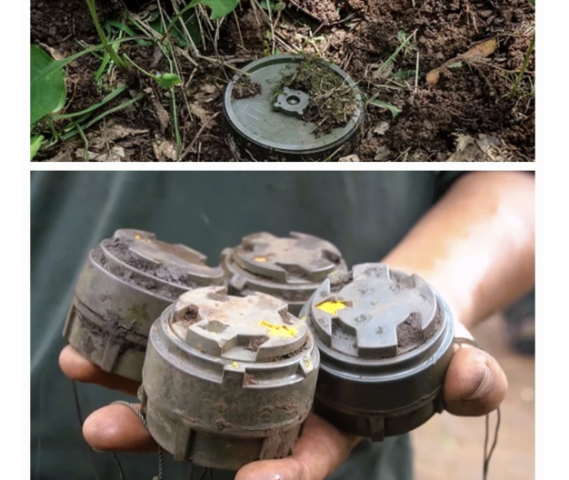An interview with U Banyar, Secretary-2 of the Karenni State Interim Executive Council (IEC), about the return of displaced locals from the towns seized by the Karenni revolutionary forces and landmine clearance.
Mine clearance operations have started in most of the towns occupied by the revolutionary forces in Karenni (Kayah) State, but have yet to start in most areas, said mine clearance workers.
Mine clearance operations are currently in progress in seven towns—Mese, Shadaw, Mawchee, Demoso, Nanmekon, Ywathit, and Moebye—under the control of the Karenni allied forces.
Network Media Group (NMG) recently conducted an interview with U Banyar, Secretary-2 of the Karenni State Interim Executive Council (IEC), about the return of displaced locals from towns seized by the Karenni revolutionary forces and the ongoing efforts to clear landmines.
Q: Are displaced individuals permitted to return to towns under the control of Karenni forces in Karenni State? What obstacles and challenges are they encountering in their journey back home?
A: The IEC has designated a safer location for the public in collaboration with the existing armed groups. Or else the IEC has facilitated their safe return home.
Q: What is the situation in towns?
A: For example, Mese and Shadaw are townships currently under our complete control. We’re currently unable to start rehabilitation efforts. With gradual management, we’re thinking about a resettlement plan or establishing temporary arrangements to relocate residents to areas with better transportation, rather than having them reside in remote forests. However, we allow the people to return to some towns, with some restrictions. In some cases, the people can easily return home without any difficulties. The situation is different. we allow the people to go home and resume their agricultural work. The situation varies, depending on locations.
Q: Under these circumstances, some of local residents are unable to return to their homes and retrieve their belongings. Did those who returned to their homes step on landmines?
A: Roughly speaking, some people who returned to their homes to clean them in Demoso and Hpruso stepped landmines. As far as we know, even within the first three months of this year, the number of victims has reached double digits. Tragically, some of these victims lost their lives.
Q: May I know the current situation of landmine clearance?
A: We’re making efforts to clear landmines to the best of our ability. However, our landmine clearance operations are not yet fully systematic or up to international standards. We have to clear landmines on our own. There are two main demining approaches. First, members of revolutionary forces clear landmines within their territories, using manpower. Second, we employ demining equipment for clearance operations. We’re focusing on clearing landmines from critical areas, but there are still many areas where demining efforts have not yet begun.
Q: How long does it take to clear landmines? What is the main thing needed to clear landmines quickly?
A: It depends on the situation of our state, the nature of conflict-torn townships and the presence of military council forces. For example, it’s estimated that it will require a minimum of three months to remove all landmines in Loikaw before residents can safely return home. Similar conditions apply to Demoso. Demining efforts are expected to take between three to six months. However, in certain townships like Shadaw, Mese, and Hpasawng, with adequate technical and financial support, it’s possible to expedite the demining process, potentially completing it within days or months.
Q: How long does it take?
A: Clearing landmines in areas heavily planted by the military council will likely require at least three to six months. However, demining becomes considerably easier in wards and villages where junta soldiers are not stationed. In essence, the duration of the military council’s presence in these areas directly influences the timeframe for mine clearance. It could span from three to six months, depending on their tenure.
Q: What else is needed to clear these landmines?
A: Another one is finance. We have yet to receive any financial assistance for it. The availability of financial and technical assistance is still difficult. The military plants landmines soon after we have cleared landmines. Our focus lies on clearing landmines in zones deemed safe for civilian return rather than unnecessary areas. On the other hand, our mine clearance technology falls short of international standards. Achieving international-standard mine clearance in Karenni State will necessitate at least a year, alongside substantial technical and mechanical support.
Sent by NMG.

